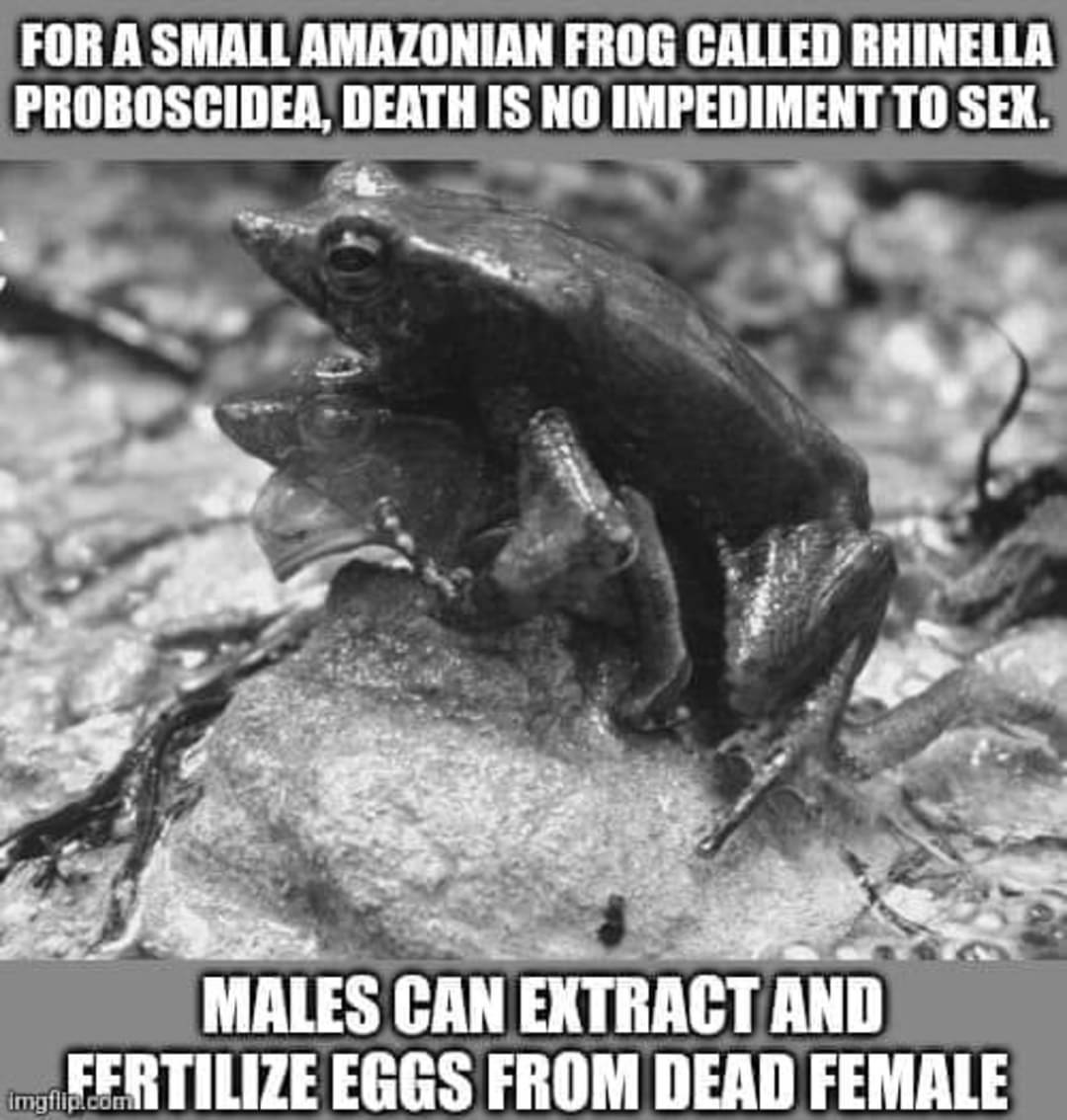this post was submitted on 28 May 2024
233 points (96.4% liked)
Science Memes
11021 readers
4688 users here now
Welcome to c/science_memes @ Mander.xyz!
A place for majestic STEMLORD peacocking, as well as memes about the realities of working in a lab.

Rules
- Don't throw mud. Behave like an intellectual and remember the human.
- Keep it rooted (on topic).
- No spam.
- Infographics welcome, get schooled.
This is a science community. We use the Dawkins definition of meme.
Research Committee
Other Mander Communities
Science and Research
Biology and Life Sciences
- !abiogenesis@mander.xyz
- !animal-behavior@mander.xyz
- !anthropology@mander.xyz
- !arachnology@mander.xyz
- !balconygardening@slrpnk.net
- !biodiversity@mander.xyz
- !biology@mander.xyz
- !biophysics@mander.xyz
- !botany@mander.xyz
- !ecology@mander.xyz
- !entomology@mander.xyz
- !fermentation@mander.xyz
- !herpetology@mander.xyz
- !houseplants@mander.xyz
- !medicine@mander.xyz
- !microscopy@mander.xyz
- !mycology@mander.xyz
- !nudibranchs@mander.xyz
- !nutrition@mander.xyz
- !palaeoecology@mander.xyz
- !palaeontology@mander.xyz
- !photosynthesis@mander.xyz
- !plantid@mander.xyz
- !plants@mander.xyz
- !reptiles and amphibians@mander.xyz
Physical Sciences
- !astronomy@mander.xyz
- !chemistry@mander.xyz
- !earthscience@mander.xyz
- !geography@mander.xyz
- !geospatial@mander.xyz
- !nuclear@mander.xyz
- !physics@mander.xyz
- !quantum-computing@mander.xyz
- !spectroscopy@mander.xyz
Humanities and Social Sciences
Practical and Applied Sciences
- !exercise-and sports-science@mander.xyz
- !gardening@mander.xyz
- !self sufficiency@mander.xyz
- !soilscience@slrpnk.net
- !terrariums@mander.xyz
- !timelapse@mander.xyz
Memes
Miscellaneous
founded 2 years ago
MODERATORS
you are viewing a single comment's thread
view the rest of the comments
view the rest of the comments

Damn, I'm getting flasbacks from that. I had to make a presentation whether functional necrophilia in animals is adaptive during my master studies. I had to read so many papers discussing the details. Conclusion: not enough evidence to conclude it's adaptive.
Edit fun fact: in the 1920s there was an Antarctic expedition funded by the British Royal Society. The scientists described necrophilia in emperor penguins (I think), but the Society refused to publish the research to not sully the image of the animals. The paper was finally published some time after 2000.
Christ, well... thanks for your work.
What does not being adaptive mean in this case?
Adaptive here means whether necrophilia occurs in order to still produce offspring, i.e. it's 'conscious' (I use that term veeeery loosely here) or if it occurs just because the animals don't recognize that the partner is dead.
I remember a paper about a frog species (not sure if it was the one from the meme) where the males participated in necrophilia, but they basically tried to squeeze eggs out of anything they grabbed. Living female, dead female, stone, sponge. All the same.
The Wikipedia article for these little monsters describes the males aggressively fighting over females mid-mating, to the point of killing some as they attempt to tear them away from one another, and then squeezing the eggs out of their dead bodies to fertilize them... Gonna guess it's the same one.
Would it be accurate to say that an adaptive trait is one selected by some evolutionary pressure, while a non-adaptive trait is just coincidence?
How could you tell if this trait was just very broad in it's application, say just the instinct to squeeze things, verses something completely coincidental?
Yeah, that's exactly right.
As for the second part, I'm not sure how to answer. Squeezing the partner is without a doubt adaptive, but squeezing anything that is roughly the same shape is a byproduct with no (strong) evolutionary pressure. Now, the question is whether functional necrophilia is adaptive or just a byproduct is very difficult to answer, but I lean towards byproduct.